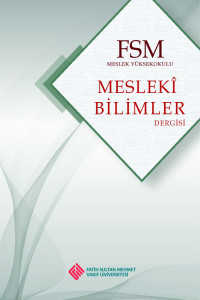Öz
Özet
Klasik yönetim anlayışının etkisi ile örgütlerin işgörenlerinde aradığı nitelikler arasında zekâ bileşeni olarak yüksek IQ düzeyi etkin rol oynamaktaydı. Zamanla salt IQ’nun yeterli olmadığı, insanın düşünen bir varlık olmakla beraber, aynı zamanda duygularının da olduğu ve yaptığı işte duygularını yok saymayarak, hissettiği duyguların bilincinde olarak ve hatta onları yöneterek çalışmaları gerektiği düşüncesi ortaya çıkmıştır. 1983 yılında Sosyolog Hochschild “Duygusal Emek” kavramını ortaya çıkardı. Hochschild fiziksel ve zihinsel emekten ayrı olarak çalışanların özellikle sosyal iletişimi çok olan işletmelerde duygusal emek de göstermeleri gerektiğini, yani duyguların işletmelerin istediği şekilde yönetilmesi gerektiğini savunmuştur.
Bu araştırmada kabin personelinin duygusal emek yeterliliklerinin görev ve bağlamsal performanslarına etkisi çalışılmıştır. Objektifliği sağlamak adına, örneklem grubu olarak bir hava yolu işletmesinden farklı yaş ve tecrübeye sahip 400 kabin personeli seçilmiş ve anket uygulanmıştır. Veriler analiz edilmiş ve kabin personelinin duygusal emek yeterliliklerinin performanslarını anlamlı bir şekilde pozitif yönde etkilediği sonucuna varılmıştır.
Abstract
High IQ level played an active role as an intelligence component among the qualities sought by organizations in their employees with the effect of the classical management approach. Over time, the idea emerged that mere IQ is not enough, that human beings are not only a thinking being, but that they also have emotions and that they should work by not ignoring their emotions in their work, being conscious of the emotions they feel and even managing them. Sociologist Hochschild coined the term "Emotional Labor" in 1983. Hochschild argued that apart from physical and mental labor, employees should also show emotional labor, especially in businesses with a lot of social communication, that is, emotions should be managed in the way businesses want.
In this study, the effect of emotional labor competencies of cabin crew on their task and contextual performance was studied. In order to ensure objectivity, 400 cabin personnel of different ages and experiences from an airline company were selected as the sample group and a questionnaire was applied. The data were analyzed and it was concluded that the emotional labor competencies of the cabin crew had a significant positive effect on their performance.
Anahtar Kelimeler
Kaynakça
- Hochschild, A.R. (1983). The Managed Heart: The Commercialization of Human Feeling, Berkeley and Los Angeles: University of California Press.
- Diefendorff, J. M., Croyle, M. H. ve Gosserand, R. H. (2005). The dimensionality and antecedents of emotional labor strategies. Journal o f Vocational Behavior, 66(2), 339-357.
- Fisher, C. D., & Ashkanasy, N. M. (2000). The emerging role of emotions in work life: An introduction. Journal of Organizational Behavior, 21(Spec Issue), 123–129
- Ashforth, B. E., & Humphrey, R. H. (1993). Emotional Labour in Service Roles: The Influence of Identity. Academy of Management Review, 18, 88-115.
Ayrıntılar
| Birincil Dil | Türkçe |
|---|---|
| Konular | Psikolojide Davranış-Kişilik Değerlendirmesi |
| Bölüm | Araştırma Makaleleri |
| Yazarlar | |
| Yayımlanma Tarihi | 30 Eylül 2022 |
| Yayımlandığı Sayı | Yıl 2022 Cilt: 1 Sayı: 1 |


